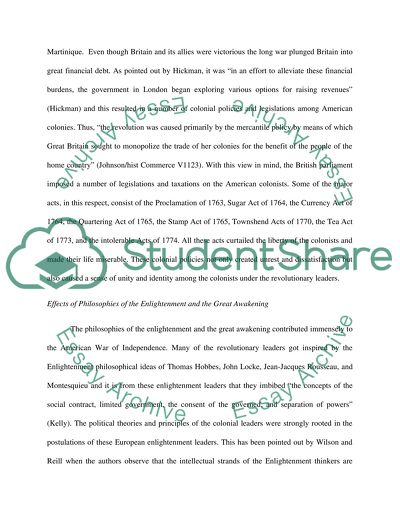Cite this document
(“The American Revolution Research Paper Example | Topics and Well Written Essays - 1750 words - 1”, n.d.)
Retrieved from https://studentshare.org/history/1460619-the-american-revolution
Retrieved from https://studentshare.org/history/1460619-the-american-revolution
(The American Revolution Research Paper Example | Topics and Well Written Essays - 1750 Words - 1)
https://studentshare.org/history/1460619-the-american-revolution.
https://studentshare.org/history/1460619-the-american-revolution.
“The American Revolution Research Paper Example | Topics and Well Written Essays - 1750 Words - 1”, n.d. https://studentshare.org/history/1460619-the-american-revolution.


